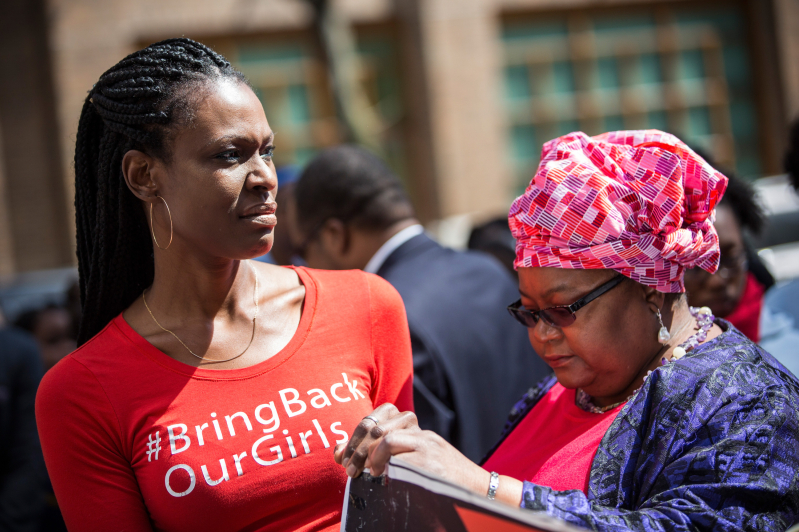
Schools are increasingly becoming a target of abductions in some parts of Africa triggering concerns over the violent expansion of radical groups and the safety of school-going children. In a span of 10 days in early March 2024, 372 children were reportedly kidnapped in Nigeria and Mozambique by armed men suspected to be either bandits involved in the herder-farmer conflicts or Islamist militants.
The northern region, notorious for kidnappings, saw two back-to-back attacks by armed men on motorbikes. On March 9, 287 students between the ages of eight and 15, who were attending a morning parade in a government primary and secondary school in Kaduna state, were kidnapped by armed men on motorcycles. This is the single largest abduction since 2021 where 150 children were kidnapped and released months later after the families paid ransom money.
Two days later, 15 other children were abducted in a school in Sokoto state, northwestern Nigeria, leaving scores of parents in shock and despair as some households have up to six children missing following the spate of kidnappings. A week after the abductions in Kaduna, the gunmen demanded a ransom of $621,848 to be paid within three weeks threatening to kill all the hostages if their demands were not met. Nigerian authorities have vowed not to pay any ransom money to the abductors.
It is estimated that 1500 students have been abducted by armed gangs and Boko Haram in the last 10 years. The 2014 abduction of 276 girls in Chibok, Borno state brought into sharp focus the efforts of Boko Haram to disrupt modern education, which the group sees as an affront to radical Islamic beliefs. Despite worldwide condemnation and a protracted campaign to rescue the Chibok girls, 98 of the abducted students are yet to be reunited with their families.
A report by Amnesty International that has tracked the conflict in Northeast Nigeria from 2012 states that children have been the most impacted, “through repeated attacks on schools; widespread abductions; recruitment and use of child soldiers; and forced marriage of girls.”
This recent spate of abductions marks a resurgence to mass kidnappings with an immediate demand for ransom revealing one of the main motives behind the kidnappings. Security expert Bulama Bukarti believes that paying the ransom would embolden the bandits.
“Paying the ransom will only exacerbate the problem because the more money these violent criminals get, the more weapons and logistics they would stock; and the more people they would abduct and the more terror they would unleash on Nigerians,” commented Bukarti in a TV news show.
Nigerian investigative journalist, Ibe Pascal, told Christian Daily International that when 300 school children were abducted in Kankara in Katsina state in 2022, the Nigerian government ordered the military to hunt down the bandits.
“But local sources revealed that a huge amount was paid as ransom to ensure the release of the children… Apart from kidnapping of school children, we have seen many times where the citizens are abducted and ransom is paid by either the families (of the victims) or by the government,” said Pascal.
Thousands displaced in Mozambique
In Mozambique’s northern province of Cabo Delgado, Jihadists with links to the Islamic State (IS) group are believed to be behind the disappearance of 70 children and displacement of close to 100,000 people fleeing the attacks that started early February.
Aid agencies and local authorities confirmed that several people were killed during the March 6 incident and 500 buildings, including schools, homes and churches were torched by the IS-affiliated group that has been making in-roads in the province since 2017.
Reports that an unspecified number of children had been rescued by a vigilante group known as ‘local forces’ is yet to be independently verified. Southern Africa security analyst, Jasmine Opperman, noted that the insurgents, who refer themselves to IS-Mozambique (IS-M), focused on influencing (local) communities in Eastern Cabo Delgado.
Mozambique
In Eastern Cabo Delgado, insurgents prioritize influencing communities, while recent assaults in Chiure (22 reported incidents) reveal a pattern of selective strikes against institutions diverging from their extremist ideology.https://t.co/AzAXfAauAL pic.twitter.com/Ar0TK2tBD6
Policy and research organisation, Hudson Institute, notes that IS-M’s affiliation with IS suggests that the insurgents are seeking to establish an Islamic state in northern Mozambique.
“However, while insurgents have always claimed to target Christians, many Muslims have (also) been killed throughout the conflict, which has resulted in the displacement of over a million people since 2017,” analysts at the institute stated.





